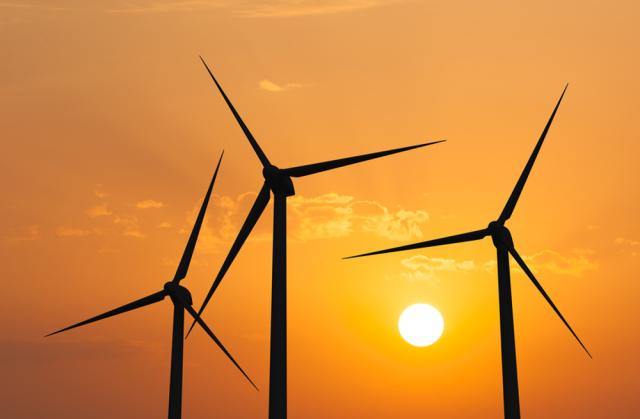
Brazil is offering companies a chance to invest in renewable energy areas such as wind and solar. (Source: Shutterstock.com)
RIO DE JANEIRO—Brazil’s abundant presalt oil and gas resources along with post-salt and onshore assets have attracted international oil companies. But the South American country is offering companies a chance to invest in renewable energy.
The opportunity comes as some companies diversify, adding cleaner energy sources such as solar and wind to their portfolios. BP, Shell and Total, for example, have expanded their portfolios to include renewables. Several oil and gas majors are investing in R&D for technologies such as carbon capture, utilization and storage, which will help meet emission reduction targets. And companies are eyeing Brazil for renewable energy investment.
For decades Brazil has been a front-runner in developing and promoting in the use of biofuels in transport. In terms of the clean generation matrix, Brazil is 20 years ahead of the global average, according to Luciano Losekann, an energy researcher and professor at Fluminense Federal University. “The challenge, however, is to maintain the share of renewables in the generation matrix. Thus, this leadership does not exempt Brazil from following emission mitigation policies,” he wrote in a July 2018 study on Brazil’s renewable energy sector.
Given the potential for wind and solar, Brazil has created incentives to promote these energy sources. These include long-term contracts established through auctions and Brazilian Development Bank (BNDES) financing resources. BNDES financing, however, is related to national production so local content policies are also in place for development of renewable energy sources.
According to Brazil’s Energy Research Office, renewable energy sources—including wind, solar and biomass—are expected to reach almost 61 gigawatts in capacity by 2027, nearly double the current 33.4 gigawatts, and reach 30% of the matrix, up from 21% today.
The installed capacity for solar energy in Brazil might reach 2.5 gigawatts by year-end 2018, an increase of about 115% compared to 1.15 gigawatts at year-end 2017, according to the Brazilian Association of Photovoltaic Solar Energy.
The future also looks bright for wind energy. Currently, wind power accounts for 8.5% of Brazil’s energy mix. But this is expected to surpass thermal generation and biomass by 2019 or 2020, according to the Brazilian Association of Wind Energy.
Some oil majors are already active in Brazil’s renewable energy sector, while others are planning to join.
Petrobras
Brazilian state-owned Petrobras (NYSE: PBR) has stake in four wind farms, with 104 MW in total installed capacity. The farms started operating in 2011.
The company also owns a 1.1-MW solar photovoltaic power R&D plant in Rio Grande do Norte, where four types of technology are being evaluated.
Most recently, Petrobras announced its first offshore wind generation project at the Ubarana Field in the Potiguar Basin. Energy generated will be measured on the platform itself, which will be connected to the ground network when the offshore wind power pilot plant is installed.
Royal Dutch Shell
Shell (NYSE: RDS.A), the largest foreign operator in Brazil’s offshore oil sector, said it also wants to focus on solar, wind and gas thermals in Brazil. The oil major owns Raizen Energia, which produces energy from biomass.
“We are currently designing the energy transition plan in Brazil. We have a team of professionals in Brazil who is studying a large number of alternatives in the area of gas, power generation, wind energy and solar energy,” Shell Brazil CEO André Araújo said after attending a company event in Rio de Janeiro.
According to the executive, there are no specific deadlines for investments, as the decision will be made based on the economic viability of the projects. “But eyeing the renewable energy industry is a priority of the company,” he said.
Araújo also confirmed that the company is analyzing a solar project in the state of São Paulo.
Equinor
Norway’s Equinor (NYSE: EQNR), which is Brazil’s third largest oil and natural gas producer, is also working to expand the development of renewable energy projects in Brazil. At year-end 2017, the company entered a partnership with Norway’s Scatec Solar, which also invests in photovoltaic projects in Brazil.
Equinor bought a 40% equity position in Scatec’s Apodi solar power plant in Quixeré city, which is located in the northeastern state of Ceará, for $25 million. Total project investment is estimated at $215 million.
In August 2018, Equinor announced talks to establish a partnership with Petrobras for offshore wind power projects in Brazil.
Total
French oil company Total acquired in August 2018 a 100% stake in the Dracena I, Dracena II and Dracena IV photovoltaic solar plants. The plants, each with a capacity of 30 MW, are located in the city of Dracena in Sao Paulo.
With that acquisition, Total will have 40 MW in solar projects under construction along with the 90 MW of the plants recently purchased.
In addition, the French company signed in July 2018 a memorandum of understanding with Petrobras to consider an onshore solar and wind energy joint venture in Brazil. Benefits of such a relationship include reducing risks and seeing potential gains in scale and synergies, Total said in a statement.
Recommended Reading
ADNOC Contracts Flowserve to Supply Tech for CCS, EOR Project
2025-01-14 - Abu Dhabi National Oil Co. has contracted Flowserve Corp. for the supply of dry gas seal systems for EOR and a carbon capture project at its Habshan facility in the Middle East.
E&P Highlights: April 7, 2025
2025-04-07 - Here’s a roundup of the latest E&P headlines, from BP’s startup of gas production in Trinidad and Tobago to a report on methane intensity in the Permian Basin.
Tamboran, Falcon JV Plan Beetaloo Development Area of Up to 4.5MM Acres
2025-01-24 - A joint venture in the Beetalo Basin between Tamboran Resources Corp. and Falcon Oil & Gas could expand a strategic development spanning 4.52 million acres, Falcon said.
TGS to Conduct Ocean-Bottom Node Survey Offshore Trinidad
2025-04-07 - TGS has awarded a client a shallow water ocean bottom node contract offshore Trinidad.
E&P Highlights: Jan. 21, 2025
2025-01-21 - Here’s a roundup of the latest E&P headlines, with Flowserve getting a contract from ADNOC and a couple of offshore oil and gas discoveries.
Comments
Add new comment
This conversation is moderated according to Hart Energy community rules. Please read the rules before joining the discussion. If you’re experiencing any technical problems, please contact our customer care team.






